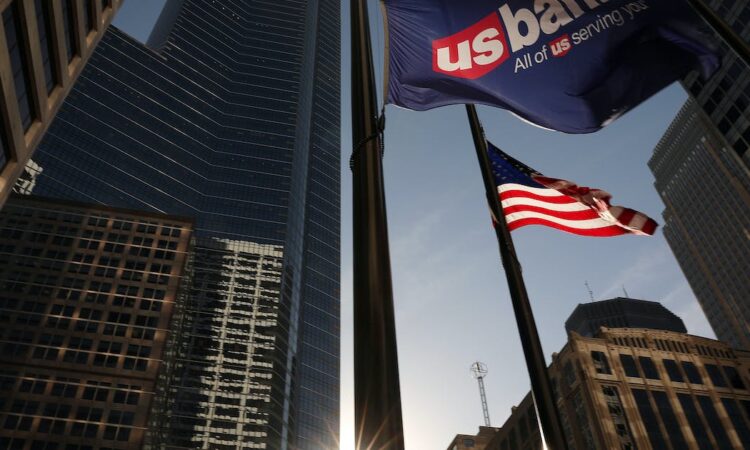
U.S. Bank must pay nearly $36 million in penalties after freezing unemployment benefit accounts at the height of the COVID-19 pandemic, when millions of Americans were jobless.
The Consumer Financial Protection Bureau (CFPB) ordered the Minneapolis-based bank to pay $5.7 million to affected customers, plus a $15 million civil penalty. The Office of the Comptroller of the Currency (OCC) assessed its own $15 million penalty.
“At a time when unemployment was close to 15%, many out-of-work Americans throughout the country had little choice but to rely on U.S. Bank for their unemployment benefits. U.S. Bank blocked access to accounts and demanded burdensome paperwork in order for consumers to regain access to their frozen benefits,” CFPB Director Rohit Chopra said in a statement Tuesday. “U.S. Bank must comply with the law, and the CFPB and OCC are making the bank pay for its conduct.”
At issue was U.S. Bank’s ReliaCard prepaid card unemployment insurance benefits program, which eligible consumers used to access state unemployment benefits. Participation in the program skyrocketed at the beginning of the pandemic, when the national unemployment rate reached 14.7%.
An uptick in fraud accompanied the surge in unemployment claims and, in summer 2020, U.S. Bank expanded its freeze criteria, ultimately blocking the accounts of tens of thousands of ReliaCard users eligible for unemployment benefits. In some cases, that block lasted for a month or longer, according to a 40-page CFPB consent order filed Tuesday.
The bank had contracts with at least 19 states and the District of Columbia to deliver unemployment benefits, the order said. Minnesota was among those states, though it’s unclear how many local consumers this affected.
In a statement Wednesday, U.S. Bank spokesman Jeffrey Shelman said the bank’s ReliaCard program grew nearly 4,000% during the pandemic, prompting the bank to “[step] up to enable the government to provide assistance to those in need during the pandemic and [work] to identify and combat fraud.”
“While a small portion of cardholders were affected due to extended holds, we prevented fraud of over $375 million and returned to the states hundreds of millions in additional funds sent to questionable accounts. This saved taxpayers from significant losses during challenging times,” he said. “The Bank is proud of the enhancements it has made to the ReliaCard program since the inception of the pandemic. We remain committed to serving our state agency clients and their customers.”
According to the CFPB order, U.S. Bank told ReliaCard users with frozen accounts to fax a copy or photo of a valid non-expired government ID, a copy or photo of a Social Security card and a prior year tax document to verify their identity, rather than to use a mobile phone verification tool that required only a photo of their ID and one of themselves.
“ReliaCard Consumers who were instructed to fax their identity verification documents faced multiple additional challenges, including delays by [U.S. Bank] in reviewing their submissions, [U.S. Bank] rejecting their documents as blurry or illegible, and incomplete or incorrect feedback from [U.S. Bank’s] personnel regarding how to correct their submissions,” the order said.
Those who used the mobile phone tool also faced challenges, the order said. According to U.S. Bank data from December 2020, half of the submissions failed.
Through January 2021, the bank continued to freeze accounts, even for consumers who had already verified their identity, the order said.
“[U.S. Bank’s] failure to provide ReliaCard Consumers with adequate means to verify their identifies from at least August 2020 through March 2021 caused, or was likely to cause, substantial injury to eligible ReliaCard Consumers whose ReliaCard Prepaid Debit Card Account [U.S. Bank] had frozen, as they were prevented from timely regaining access to government benefits to which they were entitled,” the order said.
U.S. Bank did not admit or deny any wrongdoing as part of the CFPB settlement. According to the consent order, the bank had $668.04 billion in total assets as of Sept. 30.





